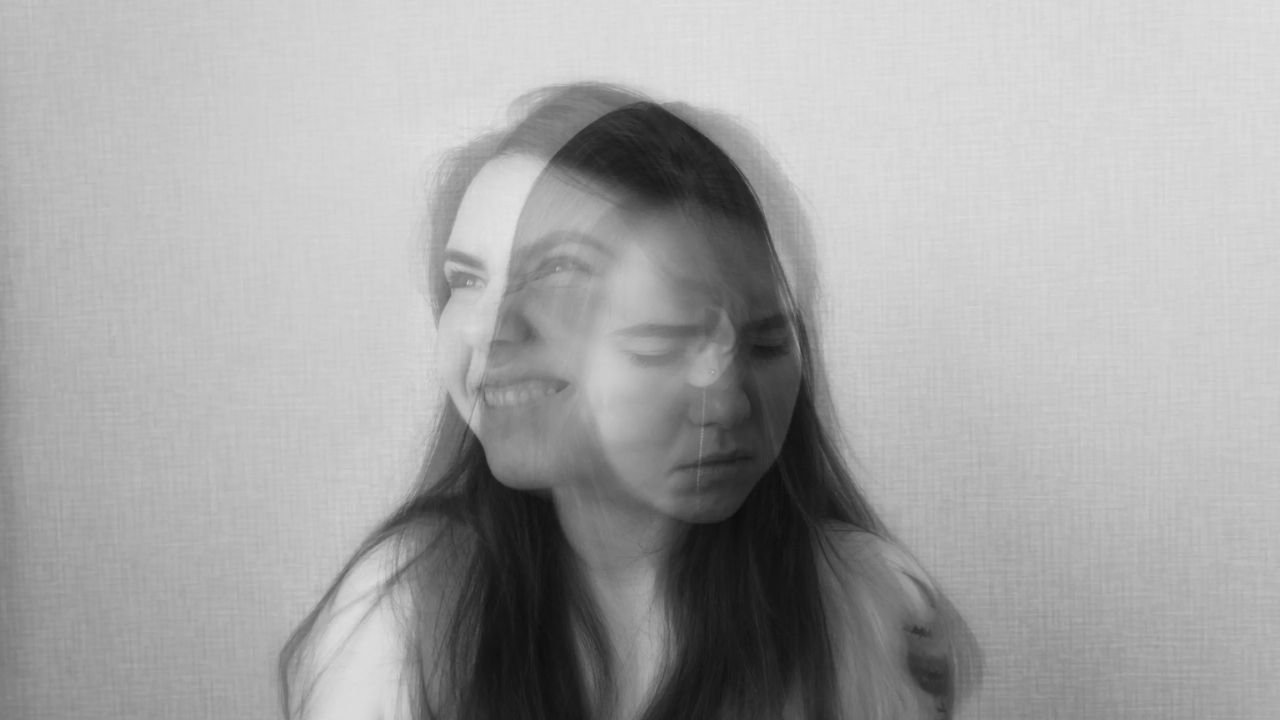Conditions Treated
Generalized Anxiety Disorder
Chronic worry and anxiety about everyday events can be overwhelming for those with Generalized Anxiety Disorder (GAD). This condition often leads to symptoms such as fatigue, restlessness, difficulty focusing, and physical discomfort like headaches and muscle tension. GAD can disrupt both personal and professional life, making daily tasks seem daunting. However, with the right treatment, including cognitive behavioral therapy (CBT) and medication, individuals can manage their symptoms and regain control. Seeking professional help is crucial for improving mental health and overall quality of life. If you’re experiencing persistent anxiety, expert guidance can make a significant difference.


Chronic worry and anxiety about everyday events can be overwhelming for those with Generalized Anxiety Disorder (GAD). This condition often leads to symptoms such as fatigue, restlessness, difficulty focusing, and physical discomfort like headaches and muscle tension. GAD can disrupt both personal and professional life, making daily tasks seem daunting. However, with the right treatment, including cognitive behavioral therapy (CBT) and medication, individuals can manage their symptoms and regain control. Seeking professional help is crucial for improving mental health and overall quality of life. If you’re experiencing persistent anxiety, expert guidance can make a significant difference.
Major Depressive Disorder

Struggling with Major Depressive Disorder (MDD) can significantly impact daily life, making even simple tasks feel overwhelming. Symptoms of MDD include persistent sadness, lack of interest in usual activities, changes in appetite, sleep issues, and difficulty concentrating. In severe cases, individuals may experience suicidal thoughts. Seeking professional help early is crucial in managing MDD effectively. With the right treatment, including therapy and medication, recovery is possible. Addressing the condition head-on can improve overall mental health and restore balance. If you or someone you know is experiencing depression, don’t hesitate to reach out for support and guidance.
Bipolar Disorder
Bipolar Disorder is a chronic mental illness affecting millions worldwide, known for causing intense shifts in mood, energy, and activity levels. It includes episodes of mania—characterized by high energy, reduced need for sleep, and impulsive behavior—and depression, which brings prolonged sadness, fatigue, and loss of interest. These episodes can severely impact daily functioning, relationships, and decision-making. Though lifelong, bipolar disorder is manageable with a combination of medication, psychotherapy, and lifestyle adjustments. Early diagnosis and consistent treatment are vital for long-term stability. If you or someone you know shows signs, seeking professional help is crucial for effective management.


Bipolar Disorder is a chronic mental illness affecting millions worldwide, known for causing intense shifts in mood, energy, and activity levels. It includes episodes of mania—characterized by high energy, reduced need for sleep, and impulsive behavior—and depression, which brings prolonged sadness, fatigue, and loss of interest. These episodes can severely impact daily functioning, relationships, and decision-making. Though lifelong, bipolar disorder is manageable with a combination of medication, psychotherapy, and lifestyle adjustments. Early diagnosis and consistent treatment are vital for long-term stability. If you or someone you know shows signs, seeking professional help is crucial for effective management.
Obsessive Compulsive Disorder

Living with Obsessive-Compulsive Disorder (OCD) can significantly impact one’s quality of life, disrupting routines, relationships, and mental peace. OCD involves persistent, unwanted thoughts that create anxiety, leading to repetitive behaviors aimed at relieving that distress. Common compulsions include excessive cleaning, checking, or organizing. These actions may provide temporary relief but often reinforce the cycle of anxiety. OCD can affect individuals of any age, and symptoms may worsen without treatment. With the right approach—such as cognitive behavioral therapy (CBT), particularly Exposure and Response Prevention (ERP), and medication—symptom management is possible. Early intervention is key to long-term stability and mental wellness.
Panic Disorder
Panic Disorder is a serious anxiety condition characterized by sudden and repeated panic attacks—intense episodes of fear that strike without warning. Symptoms often include chest pain, rapid heartbeat, shortness of breath, dizziness, and a feeling of losing control. These episodes can be so overwhelming that individuals begin to avoid certain places or situations, fearing another attack. Left untreated, Panic Disorder can severely affect daily life and emotional well-being. Effective treatment options include cognitive behavioral therapy (CBT), medication, and stress management techniques. Early diagnosis and professional intervention are essential for controlling symptoms and improving overall mental health and quality of life.


Panic Disorder is a serious anxiety condition characterized by sudden and repeated panic attacks—intense episodes of fear that strike without warning. Symptoms often include chest pain, rapid heartbeat, shortness of breath, dizziness, and a feeling of losing control. These episodes can be so overwhelming that individuals begin to avoid certain places or situations, fearing another attack. Left untreated, Panic Disorder can severely affect daily life and emotional well-being. Effective treatment options include cognitive behavioral therapy (CBT), medication, and stress management techniques. Early diagnosis and professional intervention are essential for controlling symptoms and improving overall mental health and quality of life.
Post Traumatic Stress Disorder

Struggling after a traumatic event may be a sign of Post-Traumatic Stress Disorder (PTSD), a serious mental health condition that can emerge weeks, months, or even years later. Symptoms often include flashbacks, nightmares, emotional detachment, and heightened anxiety, all of which can disrupt daily life and relationships. PTSD may stem from experiences such as abuse, accidents, natural disasters, or military combat. With the right care, including trauma-focused therapy, cognitive behavioral therapy (CBT), and medication, individuals can manage symptoms and regain stability. Early intervention and professional support are crucial steps toward healing and restoring emotional well-being after trauma.
Insomnia & Sleep Disturbance
Restoring healthy sleep patterns is essential for overall well-being, and seeking professional help can uncover the root causes of insomnia and sleep disturbances. These conditions often result in daytime fatigue, irritability, poor concentration, and reduced productivity. Sleep issues may stem from stress, anxiety, depression, lifestyle choices, or medical concerns. Without treatment, they can significantly affect mental and physical health. Proven therapies like cognitive behavioral therapy for insomnia (CBT-I), mindfulness, and routine adjustments can greatly improve sleep quality. Addressing sleep disturbances early can enhance daily functioning and support a more balanced, energized life.


Restoring healthy sleep patterns is essential for overall well-being, and seeking professional help can uncover the root causes of insomnia and sleep disturbances. These conditions often result in daytime fatigue, irritability, poor concentration, and reduced productivity. Sleep issues may stem from stress, anxiety, depression, lifestyle choices, or medical concerns. Without treatment, they can significantly affect mental and physical health. Proven therapies like cognitive behavioral therapy for insomnia (CBT-I), mindfulness, and routine adjustments can greatly improve sleep quality. Addressing sleep disturbances early can enhance daily functioning and support a more balanced, energized life.
Adjustment Disorder

When facing significant life changes or stressors, such as a breakup, job loss, or illness, many individuals develop Adjustment Disorders. These conditions are characterized by emotional or behavioral responses that are disproportionate to the situation, leading to symptoms like anxiety, sadness, trouble sleeping, and difficulty focusing. If left unaddressed, these disorders can interfere with daily functioning and mental health. Early treatment through psychotherapy, stress management, and lifestyle adjustments can help individuals better adapt and regain emotional balance. Professional support plays a crucial role in managing symptoms and fostering long-term emotional stability.
Addiction & Substance Abuse Therapy
During the teenage years, adolescents often face emotional and behavioral challenges that can affect their growth and well-being. Issues like depression, anxiety, aggression, and social withdrawal may arise due to academic pressure, family struggles, or peer influence. If not properly addressed, these concerns can lead to long-term effects on mental health, relationships, and academic success. Early intervention is key, with counseling, therapy, and strong support systems from family and educators. Providing a safe environment for open communication and professional help can guide adolescents through these difficulties, fostering emotional stability and healthy behavior.


During the teenage years, adolescents often face emotional and behavioral challenges that can affect their growth and well-being. Issues like depression, anxiety, aggression, and social withdrawal may arise due to academic pressure, family struggles, or peer influence. If not properly addressed, these concerns can lead to long-term effects on mental health, relationships, and academic success. Early intervention is key, with counseling, therapy, and strong support systems from family and educators. Providing a safe environment for open communication and professional help can guide adolescents through these difficulties, fostering emotional stability and healthy behavior.
Seasonal Affective Disorder

During the fall and winter months, Seasonal Affective Disorder (SAD) can significantly affect individuals, causing symptoms like irritability, fatigue, changes in sleep and appetite, and difficulty concentrating. Reduced daylight exposure and disruptions in circadian rhythms are believed to contribute to the onset of this condition. SAD often leads to social withdrawal and a sense of hopelessness. Light therapy, psychotherapy, and medication are effective treatments to help manage symptoms. Early diagnosis and timely intervention are essential for alleviating the effects of SAD, ensuring better mental health and well-being during the challenging seasonal changes.
Schizophrenia Disorder
Living with schizophrenia can feel isolating and confusing—for both the individual and their loved ones. It’s a complex condition that may involve hallucinations, disorganized thinking, and emotional withdrawal, making everyday life feel fragmented and overwhelming. But with the right treatment and consistent support, recovery is not just possible—it’s absolutely achievable. My approach to managing schizophrenia involves a tailored combination of medication, psychotherapy, and family education. I work with you to reduce symptoms, rebuild communication, and foster independence. You’re not defined by your diagnosis—and together, we’ll work toward a life that feels more connected, stable, and hopeful.


Living with schizophrenia can feel isolating and confusing—for both the individual and their loved ones. It’s a complex condition that may involve hallucinations, disorganized thinking, and emotional withdrawal, making everyday life feel fragmented and overwhelming. But with the right treatment and consistent support, recovery is not just possible—it’s absolutely achievable. My approach to managing schizophrenia involves a tailored combination of medication, psychotherapy, and family education. I work with you to reduce symptoms, rebuild communication, and foster independence. You’re not defined by your diagnosis—and together, we’ll work toward a life that feels more connected, stable, and hopeful.
